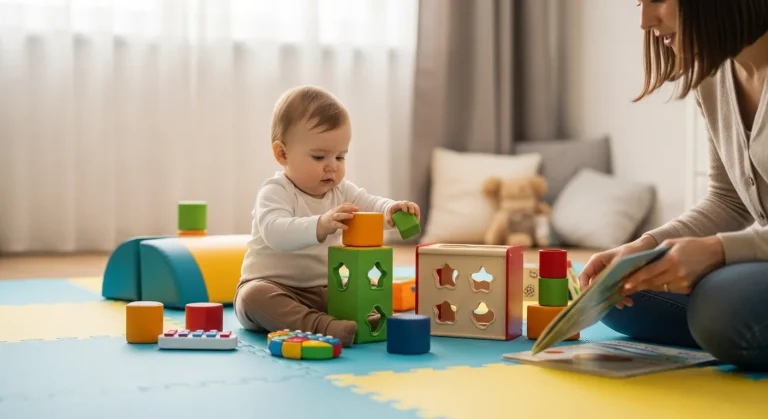Top 10 Things You Should Avoid Saying To Your Eldest Child: Parenting Hacks For Better Relationships
Parenting can be challenging, especially when it comes to raising your firstborn. Things you should avoid saying to your eldest child are crucial to keeping the relationship strong, supportive, and healthy. Firstborn children often carry more responsibilities, and as parents, it’s important to be mindful of the words we use with them. Whether you’re navigating sibling rivalry or simply trying to communicate more effectively, the way you speak to your eldest can shape their emotional development and self-esteem.
In this article, we’ll explore parenting hacks to improve your relationship with your firstborn. You’ll also discover parenting mistakes to avoid, practical communication strategies, and how to raise a confident firstborn child. Let’s dive into the things you should avoid saying to your eldest child to ensure a positive, loving atmosphere at home.
Why Words Matter: The Impact of What We Say to Our Eldest Child
The words we say to our children can have a lasting impact, especially on our firstborn. They may often feel the weight of expectations, leadership, and responsibility. This can lead to added stress, making communication crucial. Avoiding certain phrases can reduce emotional pressure and encourage positive relationships.
Understanding how to communicate with your eldest child is essential in ensuring they feel supported rather than burdened. Parenting the firstborn child effectively involves choosing your words carefully, offering encouragement, and maintaining healthy boundaries.
H2: 10 Things You Should Avoid Saying To Your Eldest Child: A Guide to Better Parenting and Communication
Here’s a list of phrases to steer clear of when talking to your firstborn, along with insights on how to communicate better:
1. “Why can’t you be more like your younger sibling?”

Comparison can breed resentment and self-doubt. Every child is unique, and each one should be celebrated for their individuality. Instead, praise their strengths and encourage personal growth without comparing them to their siblings.
- Alternative: “I love how you always handle things with maturity. What do you think about trying a new approach for this?”
2. “You’re the oldest, so you should know better.”

While it’s natural to expect the eldest child to take on some leadership roles, this phrase can place too much pressure on them. Parenting advice for firstborns suggests recognizing their need for guidance and understanding.
- Alternative: “I know you’re the oldest, but it’s okay to ask for help when you need it.”
3. “You’re the responsible one, so figure it out.”

Pushing responsibility onto your firstborn can overwhelm them. Children need support, not just responsibility. Healthy relationships with your eldest child are built on mutual respect and understanding.
- Alternative: “I trust you, but let’s work together to figure out a solution.”
4. “You should be setting a good example for your siblings.”

This phrase can feel like a burden, especially if your eldest is struggling. Instead of using guilt to motivate, offer encouragement and recognize the effort they’re putting in.
- Alternative: “You’ve been doing a great job. How can we work together to make things even better?”
5. “I wish you’d act more like an adult.”

Children, especially firstborns, are still learning and growing. Expecting them to act as an adult can hinder their emotional development. Parenting hacks suggest encouraging emotional expression and growth at an appropriate pace.
- Alternative: “It’s okay to act your age and have fun, but also be responsible when it’s needed.”
6. “Stop acting like a baby.”

Even if your firstborn is showing signs of immaturity, belittling them for it can damage their self-esteem. Acknowledge their feelings and guide them toward more mature behavior without shaming them.
- Alternative: “I understand you’re feeling upset, but let’s talk about how we can handle it in a more grown-up way.”
7. “I expect more from you.”

Setting high expectations is natural for firstborn children, but this can inadvertently create feelings of inadequacy. Focus on effort and progress rather than demanding perfection.
- Alternative: “I know you’re trying your best. Keep it up, and I’m proud of your hard work!”
8. “Why are you always the one making mistakes?”

No child wants to feel like they’re the one who always gets things wrong. Instead of focusing on mistakes, emphasize learning opportunities and growth.
- Alternative: “Mistakes happen, and they’re part of learning. Let’s figure out how we can fix this together.”
9. “You should be more independent.”

While independence is important, pushing it too early can lead to frustration and confusion. The firstborn often gets caught between being the “responsible” one and still needing guidance.
- Alternative: “It’s great that you’re becoming more independent, but it’s okay to ask for help when you need it.”
10. “You’re the firstborn; you should know everything.”

The idea that the firstborn should automatically know more or be perfect is unrealistic and unfair. Firstborn children need guidance, just like any other child. Firstborn child parenting tips emphasize supporting them in their role rather than expecting them to always have the answers.
- Alternative: “It’s okay to not know everything, and I’ll always be here to help guide you.”
Effective Communication with Your Eldest Child
The way you communicate with your eldest child plays a significant role in their emotional development. Eldest child communication hacks involve being patient, offering praise, and making sure that your child feels heard. By using positive reinforcement, empathy, and active listening, you’ll create a bond that’s built on trust and respect.
Here are a few parenting hacks to improve your communication:
- Active Listening: Make sure your firstborn knows they have your full attention when speaking. This will make them feel valued.
- Positive Reinforcement: Celebrate their efforts and achievements, no matter how small.
- Be Supportive: Offer guidance and support when needed, rather than placing unrealistic expectations.
- Give Them Space: While they might be more mature than their younger siblings, your eldest still needs time to relax and enjoy their childhood.
Conclusion: Fostering a Healthy Relationship with Your Eldest Child
Raising a firstborn is an exciting yet challenging journey. The things you should avoid saying to your eldest child are just as important as the things you should say. By being mindful of your words, you can create a loving, supportive environment that fosters healthy relationships with your eldest child. Parenting the firstborn child effectively involves recognizing their unique position and providing them with the guidance they need to grow without undue pressure.
By using parenting hacks and applying the firstborn child parenting tips mentioned here, you can ensure your eldest child feels confident, heard, and respected.


